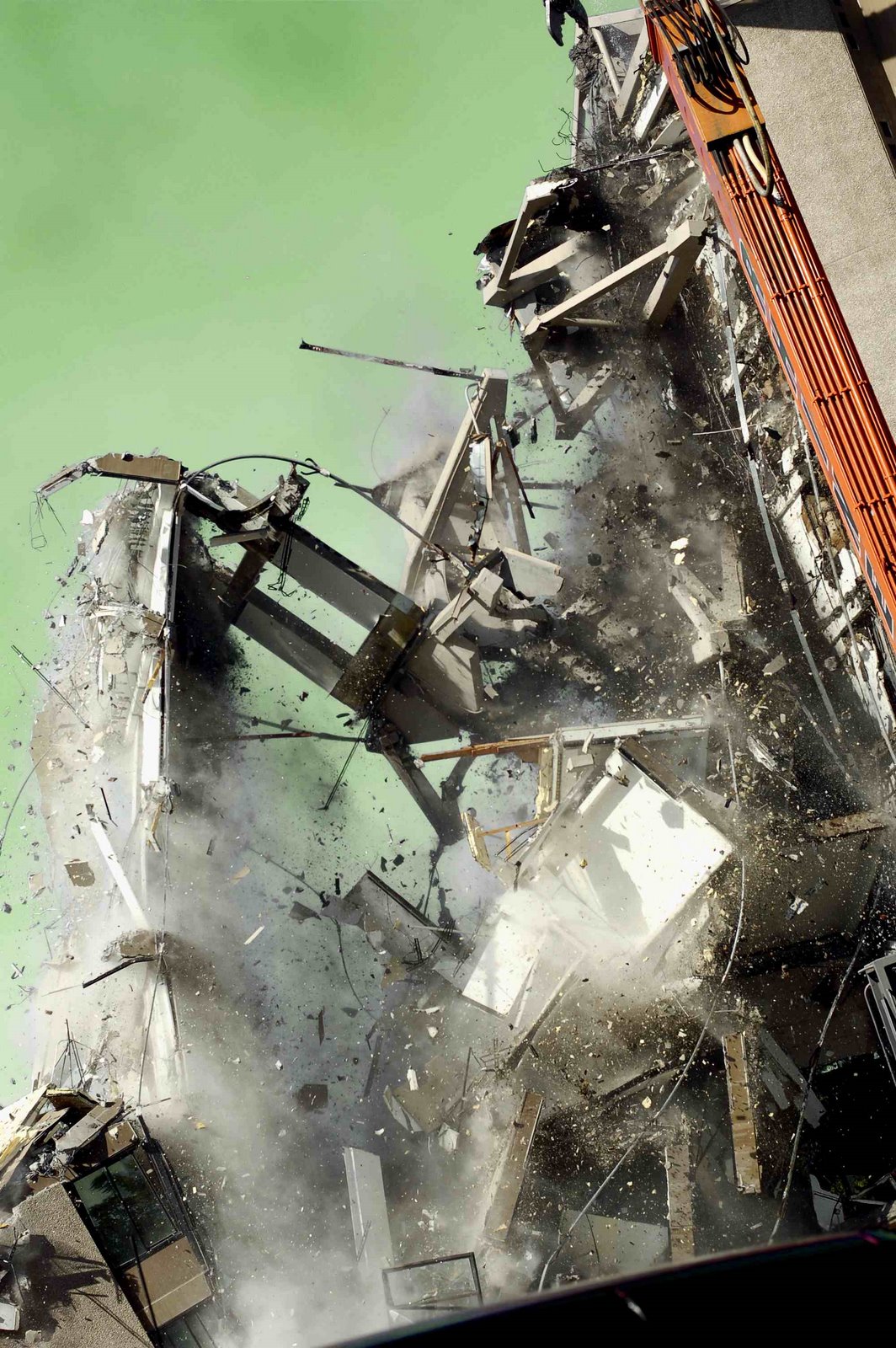
I am still developing the process for this blog, so to kick things off I thought I would avoid bringing another person into this mess and write in the third person.
The featured artist for today hails from Seattle, WA and goes by The Strait of Anain. You can download "The Strait of Anain EP" from the now defunct Kikapu Netlabel.
Can you tell us a little about your past experiences with music?
I began playing trumpet in the 5th grade. I didn't really care much for it but I stuck with it until I was in the 7th grade. At that point I had a new band teacher who taught me to really love playing music. Threw out High School I played trumpet in every possible opportunity. For example, there were days when I would get to school at 6:30am for jazz band, play in the concert band during the school day, and stay after school for a few hours for the stage musical rehearsal where I played in the pit orchestra. I also started to pick up other instruments like guitar, bass, and hand drums. I also purchased a Boss Digital 4-track recorded and played with Sonic Foundry's Acid software.
After graduating high school I played less music but got into audio recording. I bought a Pro Tools LE system that came with Reason Adapted (a striped down version of Reason) and started a project that I called Architect. It was pretty lame music, but it taught me a lot about building music from nothing to a completed recording.
When did you record "The Strait of Anain EP"?
I did the EP in 2005 when I was studying audio recording at the Conservatory of Recording Arts and Sciences in Arizona. "Be Pleased My God" was recorded after I graduated and I tacked it onto the release. I'm not a huge fan of that version of "Be Pleased My God" so I'm re releasing it under my Speed Chess music.
How would you describe the EP?
I like to tell people that it's electronic music without the synths. The entire EP was recorded into Pro Tools and was really influenced by the digital workstation format. I think this allowed me to work like an electronic musician because even though I was playing guitars and trumpets, everything was free game to chop up, move around, and rerecord when I had a better idea how I wanted things. I used the redrum in reason adapted and a few synths, but for the most part it was guitars, bass, and trumpet. So, electronic with more organic instruments.
Can you list some of the equipment you used?
I was at an audio recording school so I got to use all kinds of great stuff. I don't remember all that I used but here's some of it:
-Various Pro Tools HD and LE systems (some mobile some studios)
-Reason Adapted
-Rode NTK tube microphone (I love this mic on trumpet because it has the clarity and body of a large diaphragm condenser but the tube mellows it out nicely)
-Boss' big Digital Delay pedal that a friend let me borrow, I don't remember what it's called
The first track, "Aspiration" has a really choppy drum n' bass feel to it. How did you go about doing the drums.
The Drums on "Aspiration" (except the bass drum that's heard at the beginning) was a two measure drum loop from Sony's Futurist Drum n' Bass CD that I bought when I was starting using acid (the software, not the drug.) I chopped the loop and moved things around to make it a similar but different 2 measure loop. I then took that loop, cut it, and time expanded/compressed as the drums for the whole track. It took a while but I think I started doing it because I was bored.
If you want to get started with this kind of sound set your DAW on a grid mode and just start playing by cutting and pasting. It's also fun to process your cuts with reverses, delays, reverbs, time expansion/compression, and whatever else you can think of to further ruin your original audio.
You used a commercial loop on the album, how do you feel about using loops?
I don't use many license free loops in my music but I occasionally take little pieces from a collection of Chinese instruments that I paid for. There are plenty of artists who look down on using commercial loops because they are generic and not truly your work. I think that this can be true but I like to take a generic loop that someone else made and make it my own. I think "cut and paste" art is really popular right now, and just because everything that appears in a piece of work isn't dictated by the artist it can drive the artist in new directions to make it something original.
What is the poem on "Aspiration"?
That is my friend Tyler Strandjord (I hope I spelled that right) reading his poem "Aspiration". We recorded it quite a while back to put music and poetry together. The music I did originally sucked, so I thought I'd give it another try while I was in school.
On "Slippy Get Back Here" there is some talking muffled in the background who/what is that about?
Unlike Aspiration this is no poetry. I just wanted to sample a voice and process it, but I didn't know what to sample. I was taking music business classes at the time and thought it would be ironic to just read my notes on sampling laws.
Are there any tips or tricks that you used on the EP that you would like to share?
I'm actually really pleased with the drum sound I got on "This is not my Home". I programed the drums for that track in Reason's Redrum and used a light distortion on it in pro tools. It made it sound like the kit was rattling the snare and I thought gave it also pleasantly colored it. If you want to use real drum sounds try putting some subtle effects over them to keep them from being so clean and sterile.
Also, be creative with what you have to get the most out of it. I wanted to record trombone but I don't have a trombone and can't play one. I cheated the system by recording the trombone parts on trumpet and pitch shifted them down. I had to be careful to bury them in the mix enough (because they sound terrible soloed) but it filled out the trumpets. There is great music being made with extensive amounts of equipment and great music being made with very little. Use what you have and be creative!
The Strait of Anain would appreciate feedback on his music and this article.
Click here to contact The Strait of Anain.



No comments:
Post a Comment